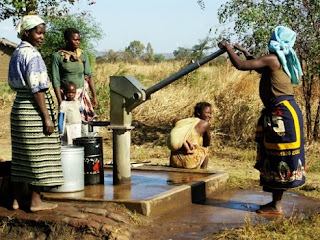Sanitation and Inequalities Revealed

As urbanisation continues, so too are inequalities. At the same time of seeing the new intensification of urbanisation, we are also observing the new waves of the urban political (MaFarlane and Silver, 2016) . When writing down this blog, I was reminded of my first blog talking about the 'real Africa' under the influence of Wainaina (2016) and the responsibility of writing. I came across several articles talking about the experiences of sanitation problems and inequalities they faced this week, and as a women by myself, I need to remind myself again in immersing myself in the middle of the settings proposed by the scholar, understanding the traditional customs of the country instead of interpreting scholar's words by using my own experiences and perspectives as a woman. This week, I was surprised by how people have different interpretations and feelings to sanitation. By drawing on two examples from the poolitical protests in Cape Town and the social inequalities faced by...


